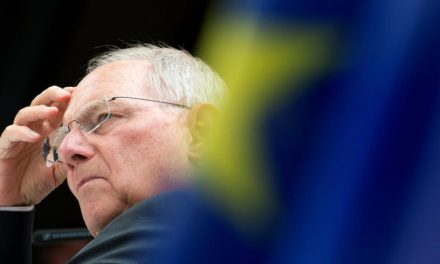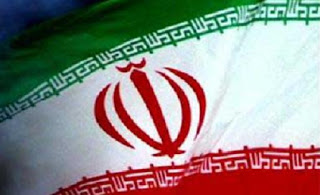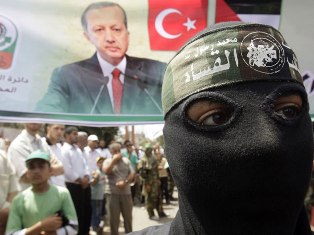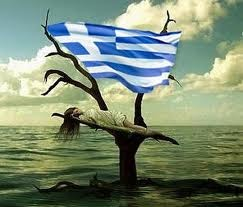Yemeni tribal opposition fighters shelled the presidential palace on Friday, injuring the president and several top officials, and rapidly turning the political battle over Yemen’s future into armed tribal warfare.
President Ali Abdullah Saleh suffered light head injuries in the attack and was taken to a military hospital, officials said. Mr. Saleh gave a brief audio statement on Yemeni television late Friday, saying he was in good health and that his injuries were minor.
He blamed the attacks on “an outlaw gang” of his tribal enemies, the powerful Hashid tribe led by Sheik Sadeq al-Ahmar, who he vowed to bring to justice. He said seven people died in the attack. Officials said several guards and one official were among those confirmed dead.
Friday’s attack came on the fourth day of intense fighting in San’a between government security forces and militiamen loyal to Mr. Ahmar, which have turned many neighborhoods into war zones and upturned residents’ lives.
The clans of President Saleh and Mr. Ahmar have a long history of vying for influence and power in Yemen, which has again come to the surface. The tribal clash carries the risk of tipping the country into civil war, especially if more tribes join the fight and the army gets involved.
It also casts a dark shadow on Yemen’s strand of the peaceful prodemocracy movement that started amid the wave of reformist uprisings against dictatorships in the region.
“They [tribes] are essentially fighting over the country as if it’s a shrinking political pie, and each side wants to take charge,” said Gregory Johnsen, a Yemen analyst at Princeton University. “It just means more fighting and more bloodshed in Yemen’s immediate future.”
The Hashid tribe didn’t claim responsibility for the attacks on the presidential compound. But a spokesman said the president had invited the attacks by provoking different factions of the opposition.
The president delivered his audio address after government representatives backed away from an earlier post-attack promise that he would address the media in person. In his statement, Mr. Saleh sought to separate the attack from the protests that have sought his ouster, crediting his armed forces for confronting “an outlaw gang that has nothing to do with the so-called youth revolution.”
Mr. Saleh and dozens of senior government officials were in the presidential compound’s mosque around the time of noon prayers when three or four rocket-propelled grenades hit the area, officials said. One official said the RPGs were fired from a rooftop across the street from the palace and hit the center of the mosque.
More than 50 senior officials, including nine ministers, were in the mosque at the time, said a senior adviser to Mr. Saleh, Ahmed Soufi. Seven senior officials were injured—including the prime minister, parliament speaker, deputy prime minister and Sana’a governor—said government spokesman Tareq al-Sham. It wasn’t immediately clear which official had been killed.
“We call on all sides to cease hostilities immediately and to pursue an orderly and peaceful process of transferring political power as called for in the GCC-brokered agreement,” the White House said in a statement.
Analysts say the GCC agreement could lose relevance if bloodshed continues and the stakes get higher for both sides. Yemen’s loose grouping of opposition parties is less likely to accept Mr. Saleh’s ruling party as a legitimate alternative, as offered under GCC, if it is deemed as having blood on its hands.
An alternative could be a transitional council made of opposition and tribal members, analysts say. The possibility of Mr. Ahmar, the tribal leader, taking over is slim, these people say, because neither the opposition nor the international community wants to see a violent overthrow of Mr. Saleh.
“No one wants to see the Saleh family replaced with the Al Ahmar family,” said Christopher Boucek, Yemen expert with Carnegie Endowment for International Peace. “We don’t know what comes next. It’s uncertainty that has prevented the opposition from planning for a post-Saleh phase.”
A spokesman for Sheik Ahmar, Abdul Qawi Qaisi, said the Hashed tribe doesn’t want to rule the country. “Yemen’s rule is for the people,” Mr. Qaisi said.
The factional war has angered many Yemenis and dealt a blow to protesters who have since February sought democratic reforms and the end to Mr. Saleh’s 33-year rule.
“I am lost. People are dying and we’re losing ground,” said Fuad Rauf, who has participated in youth protests in San’a since demonstrations began there but says the revolution has been coopted by “the criminals of Saleh and Ahmar.”
San’a residents reported street battles and explosions continued throughout Friday. Basic services like electricity, water, Internet and mobile network were disrupted, according to residents. Many continued to evacuate to the countryside.
Witnesses reported clashes in the southern area of Hadda, where two sons of Mr. Ahmar have residences. Witnesses reported sustained government missile strikes had hit tens of other houses in the area.
“They are tearing Yemen up and making its peaceful people turn violent,” said Hadda resident Mohammed Sabri, who said his house sustained damages that would take years to repair.
Supporters of Mr. Saleh, who said they gathered for peaceful progovernment protests Friday afternoon on San’a’s Sabeen Square, said they came under fire. Witnesses said seven government supporters were shot by what they said were Hashid tribesmen.
In 18 of Yemen’s 21 provinces, demonstrators called on President Saleh to step down to save the country from a possible civil war, according to residents.


















